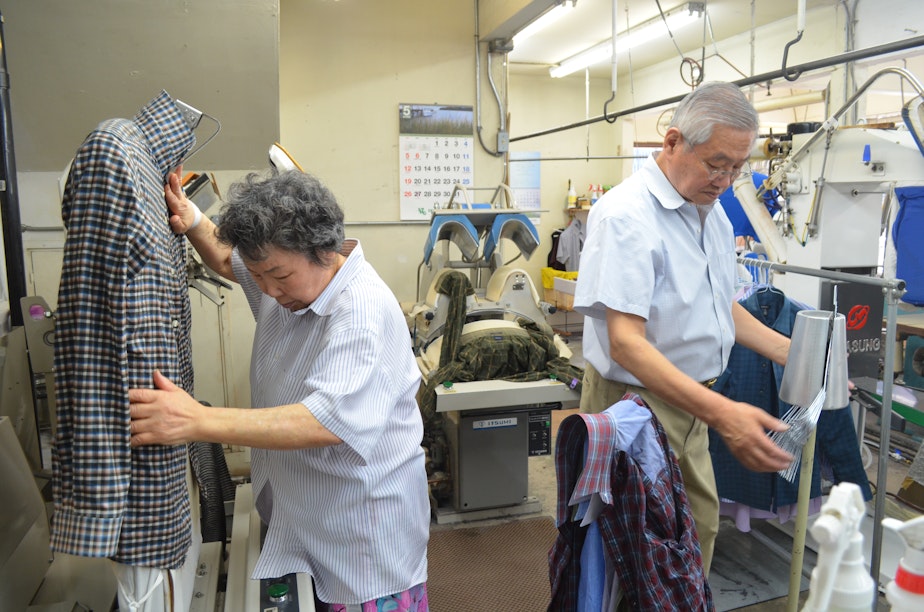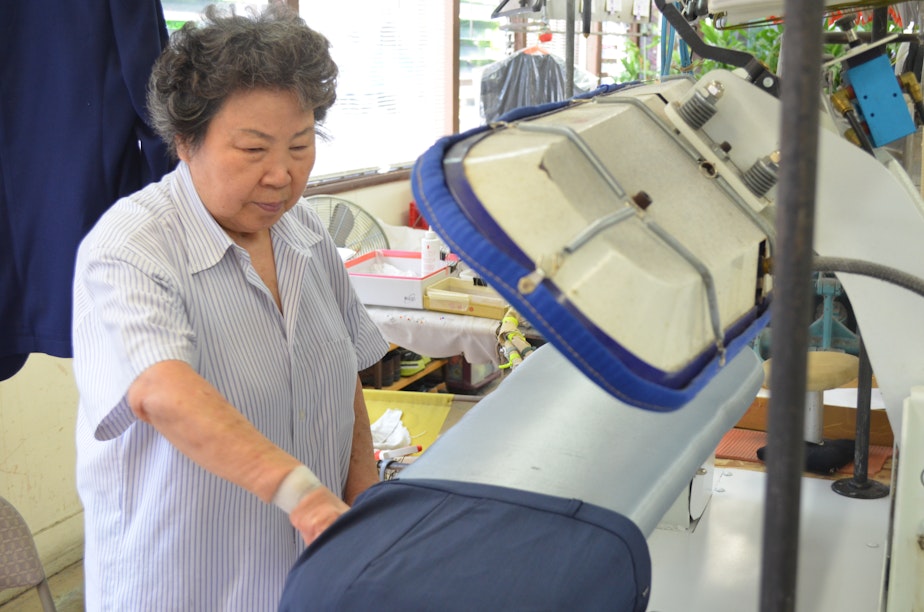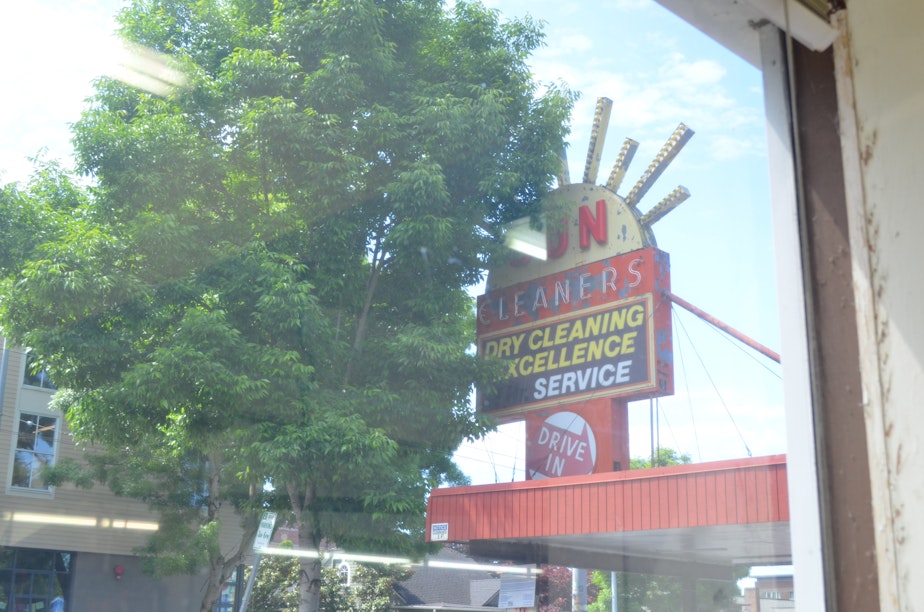Dry cleaning (and its toxic process) is on its way out

Hyen Sook Kang said she first started to worry about the chemicals used in her Wallingford dry cleaning business when a woman at her church got sick.
“One day, she seemed abnormally thin,” Kang said in Korean through an interpreter.
“The woman’s face was emaciated,” her husband, Tae Park, added.
Kang learned the woman, who had also run a dry cleaning business for decades, had stomach cancer.
At the same time, Kang was having her own health problems. She blames them on the chemical she and her husband used to clean clothes: perchloroethylene--or perc for short.
“The perc hurts my chest and makes me dizzy,” Kang said. “It’s horrible.”
Sponsored
Perchloroethylene is associated with a number of health problems -- and, when spilled, it can leak through unsealed concrete and eventually into groundwater.
That’s why King County has launched a program in effort to get all the dry cleaners in the county to switch to wet cleaning technology by 2025.
Kang and Park's Sun Dry Cleaners in Wallingford is one of 11 dry cleaners that have switched.
The EPA says perc can cause headaches and dizziness. National Institutes of Health studies have found that people who work in dry cleaners that use perchloroethylene are at increased risk for some cancers and for kidney disease.
A trade group representing perchloroethylene manufacturers disputes those findings, saying that evidence of cancer in humans is “limited at best” and often “confounded by exposure to other possible carcinogens.”

Sponsored
“Over 80 percent of the dry cleaners in King County--the business owners--are originally from South Korea,” said Steve Whittaker, a toxicologist with King County Public Health. “Only about a quarter were actually aware that perc could have health effects on themselves.”
So King County is offering help in the form of $20,000 grants to switch away from dry cleaning to professional wet cleaning technology: basically, extremely precise detergents and laundry machines, which can be programmed to protect, say, suits and wedding dresses.
“The chemicals that are used along with the water in the professional wet cleaning process are a lot safer than the chemicals that are traditionally used with perc dry cleaning,” Whittaker said.
The grant covers less than half the cost of switching to wet cleaning, but, counterintuitively, dry cleaners will make up some of the difference in lower water bills. That’s because they no longer have to have a continuous stream of water running through a cooling system to keep their perc machines from overheating.
One reason many dry cleaners might want to buy new machines is that it’s possible they’ll have to stop using perc soon. The EPA is requiring that dry cleaners that, like Sun Cleaners, are in residential buildings get rid of their perc machines by 2020. And the EPA could expand that ban: Perchloroethylene is on a list of ten chemicals the agency is considering for a total ban.
Sponsored
Sun Dry Cleaners is in downtown Wallingford. It has a 1950s-style sign with a rising sun and a covered area for customers to park and run in with their clothes.
Kang and her husband have owned the business since 1985.
Recently, Hyen Sook Kang and Tae Park were busy pressing clean shirts, arranging them in machines that stretch and steam them to get rid of all the wrinkles.
Kang said that since she and Park took the grant to get the wet-cleaning machine, she feels better.
“I don’t get tired -- not at all -- since switching to this machine,” she said.





